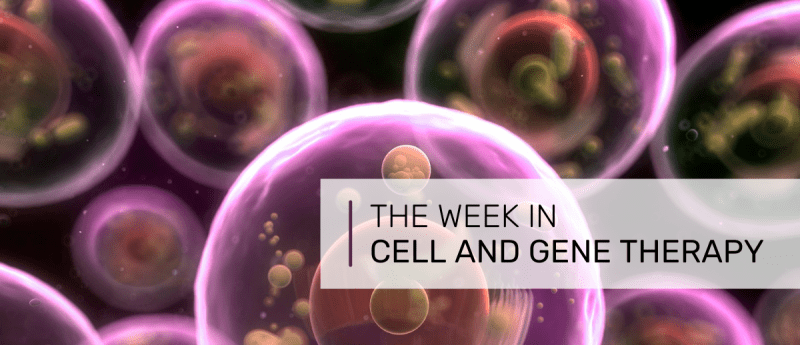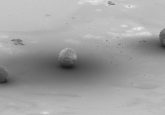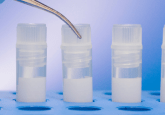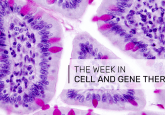Cell therapy weekly: BiologIC Technologies and Oxford Biomedica partner to pioneer viral vector development through biocomputing

This week: BiologIC Technologies and Oxford Biomedica partner to pioneer viral vector development through biocomputing, Cellular Engineering Technologies secure patent for novel iPSC technology and Penn Researchers reduce CAR-T therapy manufacturing timelines to 24 hours.
The news highlights:
BiologIC Technologies and Oxford Biomedica partner to pioneer viral vector development through biocomputing
BiologIC Technologies (Cambridge, UK), a biocomputer company enabling the next wave of laboratory automation, has announced its entrance into an agreement with Oxford Biomedica (Oxford, UK), a cell and gene therapy company that specializes in the development of gene-based medicines. The two companies will partner to accelerate cell and gene therapy, developing viral vectors through a novel biocomputer system invented by BiologIC. The collaboration aims to advance the development and manufacturing of novel viral vectors, innovating new processes and gaining insights from real-time data using BiologIC’s platform.
Biocomputing operates at the intersection of engineering, biology and computer science, seeking to use cells, DNA and RNA to perform computations in a sustainable and accessible way. The biocomputer system uses proprietary technology and IP in its Bio Processing Units, which may significantly expand the biological processing power available to application developers.
“We are inventors of the biocomputer. Our ambition is that the biocomputer will drive a revolution in biology to help humanity address global problems, such as the existential threat of diseases, in sustainable and accessible ways,” commented Richard Vellacott, Chief Executive Officer of BiologIC Technologies. “Oxford Biomedica has an outstanding track record for technology innovation, and so we are particularly delighted to collaborate with this leading gene and cell therapy group to support the development of powerful new processes and data insights using the biocomputer platform,” he continued.
Cellular Engineering Technologies secure patent for novel iPSC technology
Cellular Engineering Technologies (CET) Inc. (IA, USA), a biotechnology company with focus on cell manufacturing and tissue culture media optimization, has secured a patent for its virus-free and oncogene-free induced pluripotent stem cell (iPSC) technology. The patented iPSC technology realizes the full potential of iPSCs in cell therapy, satisfying important regulatory requirements with lower clinical risk from cord and peripheral blood mononuclear cells. A study exploring the iPSC technology was previously published in Future Science Open Access and Regenerative Medicine.
The patent, granted by the United States Patent and Trademark Office, provides a new standard in pluripotent stem cell safety by reducing viral and neoplastic risk. It also joins CET’ intellectual property portfolio, featuring expertise in human somatic stem cell manufacturing and bioprocessing, access to a worldwide license to utilize CRISPR, a license from John Paul II Medical Research Institute’s (IA, USA) immortalized human stem cells for vaccine manufacturing, allogeneic CAR-T and CAR-NK cell therapies and gene therapy vectors.
“CET’s objective is to expand contract manufacturing and research services for CET and JP2MRI’s therapeutic pipeline, as well as biopharmaceutical partners who wish to license CET’s pivotal intellectual property to advance their pipeline in cell therapy, biologics, vaccines and gene therapy vectors,” remarked Alan Moy, CEO and Co-Founder of Cellular Engineering Technologies and Founder of John Paul II Medical Research Institute.
Penn Researchers reduce CAR-T therapy manufacturing timelines to 24 hours
Penn Medicine (PA, USA) are utilizing a novel approach to shorten CAR-T cell therapy manufacturing. The cell manufacturing process could alter immune cells within 24 hours, compared to its typical length of 9−14 days. A preclinical study lead by Center for Cellular Immunotherapies (PA, USA), published in Nature Biomedical Engineering, revealed the swift novel approach produced enhanced anti-tumor CAR-T cells in 24 hours, demonstrating the potential shortening of manufacture time, materials and labor. The study provides a vision for the future of CAR-T therapy manufacturing, which currently faces challenges of costly and time-consuming processes.
“This innovative approach is remarkable in that it may be able to help patients who might otherwise not be able to benefit from CAR T cell therapy such as those with rapidly progressing cancer due to significant time currently need to generate these therapies,” commented Saba Ghassemi, research assistant professor of Pathology and Laboratoy Medicine at Center for Cellular Immunotherapies. “Efficient reprogramming of T cells with a CAR in as little as 24 hours in a more simplified manufacturing process without T cell activation or extensive culture outside the body also offers the possibility of expanding where and when these therapies are produced. Not only might it improve the production capacity of centralized manufacturing facilities, but if simple and consistent enough, it might be possible to produce these therapies locally near the patient, which could be tantamount to addressing the many logistical challenges that impede delivery of this effective therapy especially in resource-poor environments.”
You might also like:





